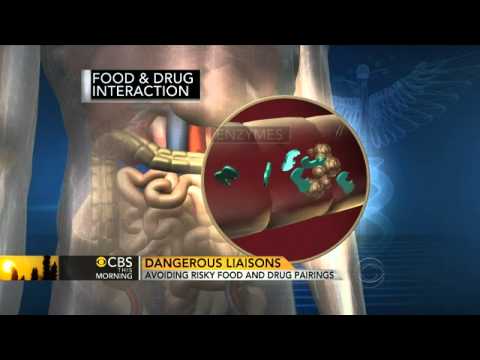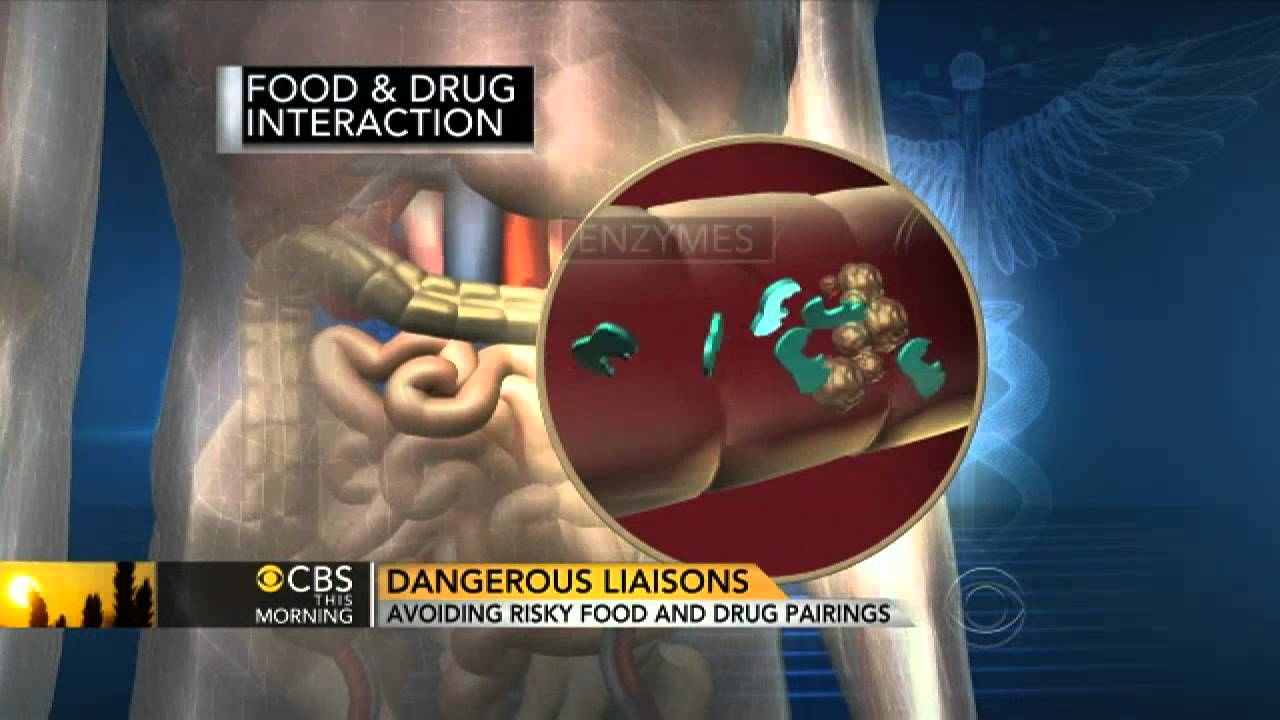Discover the Surprising World of Grapefruit Drug Interactions: Uncover the tantalizing secrets behind the enigmatic relationship between grapefruit and certain medications. Prepare to be captivated by the unexpected consequences that arise when these two seemingly innocent entities collide. With over 85 drugs known to interact with grapefruit, this phenomenon has sparked the curiosity of scientists and health enthusiasts alike. Delve into the fascinating chemical reactions that occur within your body when grapefruit is consumed alongside medication, and unravel the intricate mechanisms at play. From increased drug potency to potentially dangerous side effects, grapefruit interactions have been described as a puzzling puzzle that continues to baffle the medical community. Explore how the unassuming citrus fruit can alter the efficacy and metabolism of various medications, opening up a realm of possibilities that may surprise even the most informed individuals. Whether you are a health-conscious individual or simply intrigued by the mysteries of science, this exploration into grapefruit drug interactions is sure to pique your interest and leave you craving more knowledge on this intriguing subject.

Drug Interactions with Grapefruit
| Drug | Effect | Mechanism |
|---|---|---|
| Statins (e.g., Atorvastatin) | Elevated risk of muscle damage (rhabdomyolysis) | Grapefruit inhibits the enzyme CYP3A4, reducing drug metabolism and increasing drug concentration in the body. |
| Calcium Channel Blockers (e.g., Felodipine) | Increased risk of low blood pressure and dizziness | Grapefruit inhibits the enzyme CYP3A4, leading to increased drug levels and stronger effects. |
| Benzodiazepines (e.g., Alprazolam) | Enhanced sedative effects | Grapefruit inhibits the enzyme CYP3A4, leading to increased drug levels and prolonged sedation. |
| Immunosuppressants (e.g., Cyclosporine) | Increased risk of kidney damage | Grapefruit inhibits the enzyme CYP3A4, reducing drug metabolism and potentially leading to toxic drug levels. |
| Opioids (e.g., Oxycodone) | Enhanced analgesic effects and increased risk of respiratory depression | Grapefruit inhibits the enzyme CYP3A4, leading to increased drug levels and stronger effects. |
Food Interactions: Surprising Culprits Posing Grapefruit-Level Risks
What Drugs Interact with Grapefruit?
Grapefruit, a popular citrus fruit known for its tangy and refreshing taste, has a surprising and potentially dangerous interaction with certain medications. It contains compounds that can interfere with the enzyme systems responsible for metabolizing drugs in the body. This interaction can lead to an increased concentration of the medication in the bloodstream, causing unexpected and potentially harmful side effects. It is essential to be aware of the drugs that interact with grapefruit to ensure your safety and well-being.
The Mechanism of Interaction
Grapefruit contains compounds called furanocoumarins, particularly bergamottin and dihydroxybergamottin. These compounds inhibit the activity of cytochrome P450 3A4 (CYP3A4) enzymes, which are responsible for breaking down many medications in the body. When grapefruit is consumed, these enzymes are inhibited, leading to decreased drug metabolism and increased drug concentration in the bloodstream.
The severity of the interaction varies depending on the specific drug and individual factors. In some cases, the interaction can be mild, causing minimal side effects. However, in other instances, the interaction can be severe, leading to toxic levels of the drug in the body. It is crucial to consult with your healthcare provider to determine the potential risks associated with grapefruit consumption and your specific medications.
Common Medications Affected
A wide range of medications can interact with grapefruit, including:
1. Statins: These cholesterol-lowering medications, such as atorvastatin and simvastatin, are significantly affected by grapefruit. The interaction can increase the risk of muscle damage and liver toxicity.
2. Antihypertensives: Medications used to treat high blood pressure, including felodipine and nifedipine, can have their effectiveness compromised by grapefruit. This interaction may result in inadequate blood pressure control.
3. Immunosuppressants: Drugs like cyclosporine and tacrolimus, which are commonly used to prevent organ transplant rejection, can have their concentration significantly increased by grapefruit. This can lead to excessive immunosuppression and an increased risk of infections.
4. Antidepressants: Certain antidepressants, such as sertraline and venlafaxine, can be affected by grapefruit. This interaction may result in increased drug levels, leading to serotonin syndrome, a potentially life-threatening condition characterized by agitation, confusion, rapid heart rate, and high blood pressure.
5. Anti-anxiety medications: Benzodiazepines like diazepam and alprazolam can also interact with grapefruit, leading to increased sedation and drowsiness. This combination can impair cognitive function and increase the risk of accidents.
Managing the Interaction
If you are taking any medications and enjoy consuming grapefruit or grapefruit juice, it is essential to discuss this with your healthcare provider. They can provide guidance on whether the medications you are taking are affected by grapefruit and recommend suitable alternatives if needed.
In some cases, it may be necessary to avoid grapefruit altogether. However, this may not always be necessary or practical. In certain situations, adjusting the timing of grapefruit consumption in relation to medication intake can help minimize the interaction. For example, consuming grapefruit several hours before or after taking medication may reduce the impact of the interaction.
Remember to read medication labels and consult with your pharmacist if you are unsure about potential interactions with grapefruit. They can provide valuable information and guidance to ensure your safety.
Conclusion
Grapefruit can have a significant interaction with various medications due to its effect on drug metabolism enzymes. This interaction can lead to increased drug concentrations in the body, potentially causing unexpected and harmful side effects. It is crucial to be aware of the medications that interact with grapefruit and consult with healthcare professionals to ensure your medication regimen is safe and effective.
By understanding and managing the grapefruit-drug interaction, you can take proactive steps to protect your health and well-being. Remember, knowledge is power when it comes to medication safety, so always stay informed and communicate openly with your healthcare team.

